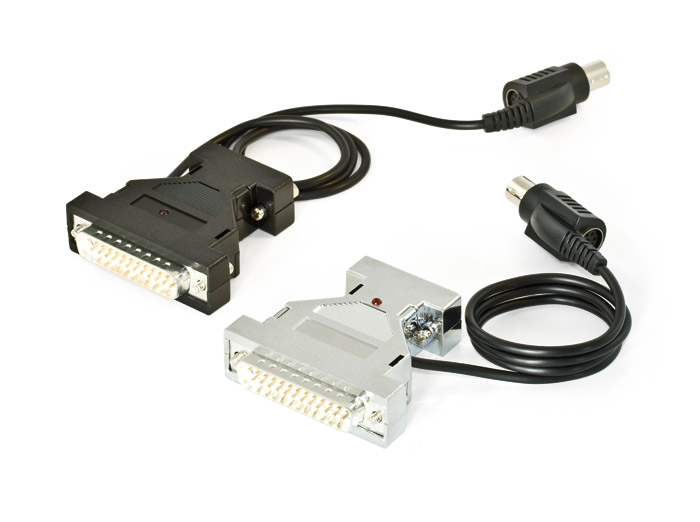
PCAN-Dongle
Part No.: MPPK-IPEH-002019 (PS/2)
MPPK-IPEH-002020 (PS/2 opto-decoulped)
This parallel connection to CAN converter is a sensible alternative to using a PCAN-USB adapter for connecting to a CAN network.
*Microport is the exclusive agent of PEAK SYSTEM in Taiwan.
Product Description
Description
This parallel connection to CAN converter is a sensible alternative to using a PCAN-USB adapter for connecting to a CAN network, especially for older PCs and laptops. Depending on the parallel interface present, it can be operated in “Multiplex” or “Enhanced Parallel Port” mode. Power is supplied to the PCAN-Dongle through a special adapter connected to the PC's keyboard output.
The opto-decoupled version also guarantees galvanic isolation of up to 500 Volts between the PC and the CAN sides.
The package is also supplied with the CAN monitor PCAN-View for Windows® and the programming interface PCAN-Basic.

Specification
- Logic control by means of integrated CPLD
- Supplied in space-saving port adapter casing D-Sub 25-pin (LPT) to D-Sub 9-pin (CAN)
- Software-driven switching from “Multiplex” to “EPP (Enhanced Parallel Port)” mode
- The voltage supply is through the PS/2 keyboard connection
- High-speed CAN connection (ISO 11898-2)
- Bit rates from 5 kbit/s up to 1 Mbit/s
- Compliant with CAN specifications 2.0A (11-bit ID) and 2.0B (29-bit ID)
- CAN bus connection via D-Sub, 9-pin (in accordance with CiA® 303-1)
- NXP SJA1000 CAN controller, 16 MHz clock frequency
- NXP PCA82C251 CAN transceiver
- 5-Volt supply to the CAN connection can be connected through a solder jumper, e.g. for external bus converter
- Galvanic isolation on the CAN connection up to 500 V (only for IPEH-002020)
- Operating temperature range from 0 to 60 °C (32 to 140 °F)

|
PIN
|
PIN Assigmnet
|
|---|---|
|
1
|
Not connected / optional +5V
|
|
2
|
CAN-L
|
|
3
|
GND
|
|
4
|
Not connected
|
|
5
|
Not connected
|
|
6
|
GND
|
|
7
|
CAN-H
|
|
8
|
Not connected
|
|
9
|
Not connected / optional +5V
|
Product Includes...
- PCAN-Dongle in plastic casing
- Device drivers for Windows® 10 (x86) and Linux
- CAN monitor PCAN-View for Windows®
- CAN monitor PCAN-View for DOS
- Programming interface PCAN-Basic for developing applications with CAN connection
- Programming interfaces for standardized protocols from the automotive sector
- Manual in PDF format
